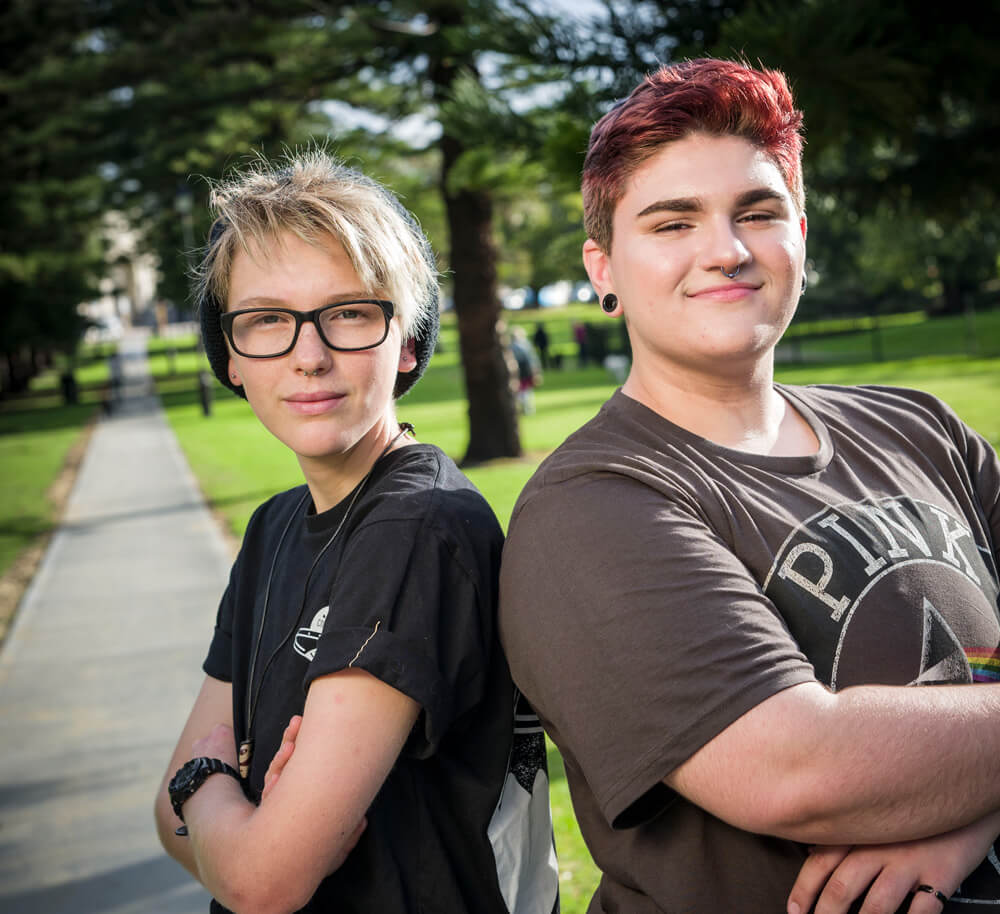Search
Research
Exploring healthcare providers’ perspectives on the factors that facilitate primary health care access among Aboriginal and Torres Strait Islander young peopleAboriginal and Torres Strait Islander young people aged 15-24 years of age often encounter challenges accessing and utilising primary health care (PHC). Providing health care responsive to the needs of Aboriginal and Torres Strait Islander young people requires the active involvement of healthcare providers (HCPs), who play a central role in healthcare delivery. This study explored perspectives of HCPs working in urban Aboriginal and Torres Strait Islander Community-Controlled Health Organisations (ATSICCHOs) on the factors that facilitate Aboriginal and Torres Strait young people accessing and utilising PHC services.
Research
Twenty-five is not a neurobiologically determined age of maturity for gender-affirming medical decision-makingAmong the increasing threats to the healthcare of transgender and gender-diverse people globally, are efforts to deny gender-affirming medical care to people under age 25 typically justified by stating that the human brain is not developed until the mid-to-late 20's. Thus, this line of reasoning states young adults are not sufficiently mature to be responsible for autonomous healthcare decision-making— at least in regard to gender-affirming care.
Research
Developmental queer and trans actualizations: A clear pathway to promoting health and well-being for sexually and gender diverse youthMinority stress models and trauma-focused approaches have predominated our understanding and responses to health disparities among sexually and gender diverse (SGD) young people for more than 30 years. While the impacts and root causes of adversities are undoubtedly critical for promoting SGD health and well-being, it is important to highlight strengths-based narratives of the lives of SGD youth.
Research
The Path Forward: Emerging Lessons From Validating a Multicountry Population-Level Data Collection Tool to Measure Adolescent and Youth Mental HealthPete Azzopardi PhD, FRACP, MEpi, MBBS, GDipBiostats, BMedSci Head, Adolescent Health and Wellbeing Head, Adolescent Health and Wellbeing Professor
Research
Non-communicable disease mortality in young people with a history of contact with the youth justice system in Queensland, Australia: a retrospective, population-based cohort studyYoung people who have had contact with the criminal justice system are at increased risk of early death, especially from injuries. However, deaths due to non-communicable diseases (NCDs) in this population remain poorly described. We aimed to estimate mortality due to NCDs in people with a history of involvement with the youth justice system, compare NCD mortality rates in this population with those in the general population, and characterise demographic and justice-related factors associated with deaths caused by NCDs in people with a history of contact with the youth justice system.

News & Events
Trans Pathways breaks down barriers for Trans YouthWhen Trans Pathways ambassador Drew, 17, came out as trans three years ago, the biggest hurdle for him was the availability of services and the time it took to access support.

News & Events
Young people suggest anti-smoking style interventions for energy drinksResearchers conducted a series of group interviews with young people to find out how much they knew about energy drinks and the consequences of drinking them.
Research
Within- and between-person relationships between spontaneous self-affirmations, coping style, and wellbeingSelf-affirmations—responding to self-threatening information by reflecting on positive values or strengths—help to realign working self-concept and may support adaptive coping and wellbeing. Little research has been undertaken on spontaneous self-affirmations in response to everyday threats, and less has been undertaken on the relationships between spontaneous self-affirmations, coping, and wellbeing.
Research
Safeguarding youth sexual and reproductive health and rights in the context of increasing climate-related disasters in the Pacific: A scoping review of policies and responsesPacific youth (15–24 years) experience multiple challenges to realising their sexual and reproductive health and rights (SRHR). Climate-related disasters compound pre-existing social and health inequities, including for youth SRHR. Meaningful youth engagement is crucial to understand their risks and inform inclusive disaster responses.
Research
Understanding Current Staff Experiences, Practices and Needs in Supporting Young People with Neurodevelopmental Disorders in the Queensland Youth Justice SystemYoung people with neurodevelopmental disorders are overrepresented in the youth justice system and face many disadvantages due to their impairments. The current study investigated what factors predict and contribute to the behavior of youth justice professionals working in the Queensland (QLD) youth justice system, utilizing a behavior change wheel framework.
